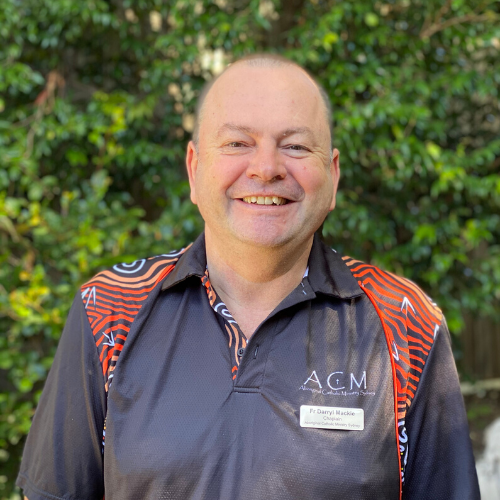Aboriginal spirituality and patient care: new research pushing Indigenous health to the front
For NAIDOC Week, meet one of the few researchers studying the integration of Aboriginal spirituality into healthcare.
 Father Darryl Mackie is not the usual researcher. Although his study aims to better health outcomes, it involves no test tube, no medical expert or clinical environment. Instead, he has gone out of the hospital walls to spend time with the people at the heart of his research, Aboriginal and Torres Strait Islander people.
Father Darryl Mackie is not the usual researcher. Although his study aims to better health outcomes, it involves no test tube, no medical expert or clinical environment. Instead, he has gone out of the hospital walls to spend time with the people at the heart of his research, Aboriginal and Torres Strait Islander people.
As Mission integration manager at St Vincent’s Private Hospital and chaplain to the Aboriginal Catholic Ministry for the Archdiocese of Sydney, his connection to both the healthcare world and to the Aboriginal community is what drives his passion for improving Indigenous health.
The first phase of this critical research project, funded by St Vincent’s Clinic Foundation, has been all about yarning with the Elders. Alongside his supervisor Rabbi Jeffrey Cohen, Father Darryl has worked on building a trustful relationship with some local Elders of the La Perouse community, seen as the Custodians of Knowledge, Wisdom, Lore and Culture in the Aboriginal community. Through conversations, he aspired to better understand the impact of spirituality on healthcare and what is needed to break down barriers in treating Indigenous peoples.
How did this research project come about?
I have always been passionate about Aboriginal culture. Although not Indigenous myself, I have several family members with Indigenous heritage. More importantly, I saw a major need in this area, as there is a real issue of disparity in Aboriginal health. I find it does not quite hit the mark, and yet this is a seriously under-researched issue. When I first started this project with the Foundation, there were only three articles written on this subject!
I want to make a difference, to change behaviours. For so long, it’s been research on Aboriginal people, rather than research with Aboriginal people.
What issues are you hoping to address with this study? Why is this research so important?
One of the key issues is that Indigenous people tend to avoid seeking medical treatment, namely because of mistrust or past trauma. We also know that too often, Aboriginal patients leave the hospital against medical advice, or if they are supposed to come back for a test or a follow-up, they won’t. These issues need to be addressed to better health outcomes of First Nations people, and this cannot be achieved without focusing on their spiritual needs.
As long as spirituality is not integrated into how we care for Aboriginal patients, we are not providing the holistic support that they need.
You focus on the importance of holistic care. Why does this matter?
Aboriginal people are very holistic people. They are not just about the physical. You have to look after the emotional, the social, the spiritual. It is all connected. It's about the connection to culture, to land and to time.
In the Western mind, we can split ourselves up into body, mind and spirit. Aboriginal people don't see it that way. To them, it is all oneness. This is why the care we provide needs to match how they see themselves.
What are the most interesting findings from your study?
Our findings cover eight key topics, including building trust in health environments, connection to country, hospital admission process and addressing the individual.
Trust is certainly one of the biggest issues. When a doctor and patient have a really good trusting relationship, it just breaks down so many barriers. Overcoming this lack of trust will take more than one single initiative, but overall what transpired quite clearly from my conversations with the Elders was better recognition and cultural integration.
By way of example, one of the Elders I met told me of an experience she had with a doctor who won her trust by simply asking if he could call her ‘Aunty’ and what it meant for her to be an elder. This may seem quite simple, but not everyone does this, and his genuine interest was enough to win her trust, straight away.
Although a positive example, bridging inequality in healthcare will obviously require to tackle the issue in many different ways.
What is the next step?
I’m currently working on publishing my findings, but I’m also preparing for an exciting next step. Since the completion of my study, I have been invited to commence a PhD for the second phase, where I plan to expand upon what has been uncovered so far. So, the first phase has really been a stepping stone for me.
My thesis is going down the road of Aboriginal spirituality in connection to culture, community, land and lore, and how it impacts health care. From there, I really hope to drive changes in the hospital system, and make a difference.